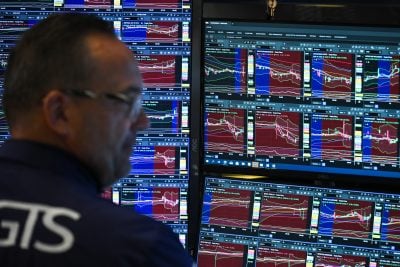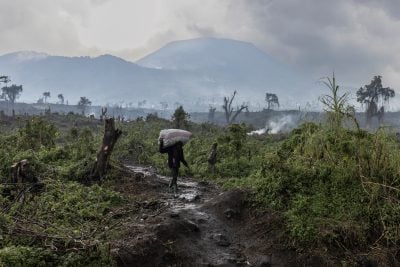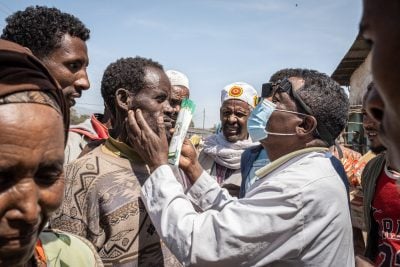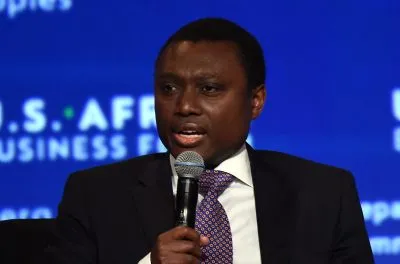On the margins of this year’s World Economic Forum, the Africa Collective, in partnership with the African Continental Free Trade Agreement Secretariat, held a panel discussion on how Africa can attract and retain the vital investments it requires to supercharge growth.
The question is all the more timely following a period of turbulence which has reinforced the continent’s need for self-reliance.
The panel included Leila Fourie, group chief executive officer of JSE Limited, which manages the Johannesburg Stock Exchange; Sim Tshabalala, CEO of Standard Bank Group; Jürgen Rigterink, first vice president and head of client services at the European Bank for Reconstruction and Development (EBRD); and Armstrong Ume Takang, CEO of Nigeria’s Public Investment Enterprise.
Africa remains an attractive proposition with a range of positive fundamentals, according to Fourie. With a young, growing population and 17% of the world’s gross domestic product, the continent can hardly be ignored, especially now that the United States Federal Reserve is set to reduce rates, refuelling the appetite for higher returns in emerging markets that had been cooled by two years of rate hikes in developed economies.
But Africa must position and market itself to attract more investor funds, she argued.
“We need to ensure regulatory certainty in order to build trust. This will also mean building skills and capacities and ensuring that we are able to deliver what we say we will deliver. And we need to show more confidence,” she urged.
Fourie emphasised the need for increased collaboration among African countries, scaling up the African Continental Free Trade Area (AfCFTA), and focusing on beneficiation across the value chain. Identifying growth opportunities in Africa, Fourie highlighted infrastructure, green initiatives, and SMEs as the growth nodes on the continent.
“Ultimately, funding follows opportunities and these are tremendous opportunities. They need to be properly packaged, integrated across countries and presented in a positive narrative,” she said.
Standard Bank’s Tshabalala said there are a number of practical things African countries can do to attract the eye of investors.
“First of all, they need to liberalise their foreign exchange markets and interest rates. They can expand the real economy and reduce the parallel economy so they can earn more taxes. They can also articulate, more clearly, their monetary and fiscal policies,” he said.
Tshabalala also stressed the need to ease the movement of goods, people and capital between African countries, including by ramping up the implementation of the AfCFTA.
He praised the reforms taking place around the continent, including the liberalisation of FX in Nigeria, the auction of spectrum to telecom operators in South Africa, and efforts to ease cross-continental travel in countries such as Kenya and Rwanda.
“This is contributing to our superior growth in Africa. We are the second fastest growing region in the world and I believe that by 2030, we will be the fastest, continuing on from there as our people get healthier, wealthier and more productive and the rest of the world less so.”
Risk premiums still deter investors
However, he conceded that the continent still unfairly suffers from negative perceptions. Kenya, Nigeria and Uganda,all of which have BB credit ratings from S&P Global Ratings, have to pay higher rates on debt than Sri Lanka (CCC) and Pakistan, which is in selective default.
“How does one explain that except to say that there’s something going on?” he asked.
Fourie also challenged the view that there is a justification for a risk premium based on unique, structural challenges that Africa has.
Drawing on her own experiences from her time at Standard Bank, she compared the situation from 15 years ago to the present day, where the bank has delivered 20% returns across its combined portfolio, with the rest of the continent now contributing more than South Africa, a reversal of the previous scenario.
“So while there are single name defaults; single name political crises and uncertainties, the returns are definitely there when you look at the portfolio effect and manage it in an appropriate way,” she emphasised.
From the point of view of an equity funds manager, Africa compares very favourably with other emerging markets, Fourie pointed out.
“Argentina’s inflation is now over 200%. Turkey’s is much better now that it used to be at 68%. Russia is currently uninvestable. Half of the emerging market investors are disinvesting from China. We saw for the first time in Q4 that China’s inbound flows turned negative,” she said.
While acknowledging the need to improve governance, Fourie argued that “the corruption in Africa is much more open and exposed; the corruption in the developed world is much more sophisticated, so it’s very difficult to compare.”
Rigterink, who said the EBRD had recently given approval for investment in six African countries, said his previous experience at the Dutch Entrepreneurial Development Bank (FMO) showed that the internal rate of return of 14% in Africa was not enough to impress investors who are sceptical of the perceived risk associated with the continent.
He linked perceptions to political instability, corruption and bureaucracy which, while not uniquely African problems, were more prevalent in the continent. He said the EBRD was working with African governments to address these challenges.
Encouraging financial flows
Tshbalala said that to counter perceived risks, commercial banks should be encouraged to invest in Africa through blended finance, with the participation of development finance institutions and philanthropic capital.
Rigterink said the role of DFIs like the EBRD is to help de-risk investment in the continent and work with private investors who require a commercial return on their investment. This means that DFIs must also be conscious of risk, he said.
“The reason why I need commercial returns is to make it more attractive for all of you. Otherwise it will stay in our little IFI [international financial institutions] world and, we are all going to be happy, but in 50 years we will still have to have the same conversation again.”
While there have been notable improvements in terms of liquidity and the scale of capital markets, Fourie said there is a challenge where leading international investors can miss out on companies who are not included in the trackable indices.
In response, JSE has launched two new markets – a voluntary carbon market and a private placements market. The carbon market will ensure that Africa is able to adequately price its abundant green renewable resources, while the private placements market aims to bring together investor capital and those seeking to raise capital, providing standardised terms and conditions without the burden of listing requirements.
As well as DFIs and stock exchanges, governments also have a crucial role in driving investment, said Armstrong Ume Takang, CEO of Nigeria’s Public Investment Enterprise. Ministry of Finance Incorporated, an agency that Takang leads, is the sole manager of all federal government investment interests.
The focus is on structuring these investments properly to make them investment-grade, ensuring proper governance structures, and leveraging these assets to attract more capital from the private sector.
“It is important that these resources become our seed, to attract more capital,” he said.
Want to continue reading? Subscribe today.
You've read all your free articles for this month! Subscribe now to enjoy full access to our content.
Digital Monthly
£8.00 / month
Receive full unlimited access to our articles, opinions, podcasts and more.
Digital Yearly
£70.00 / year
Our best value offer - save £26 and gain access to all of our digital content for an entire year!

 Sign in with Google
Sign in with Google 





